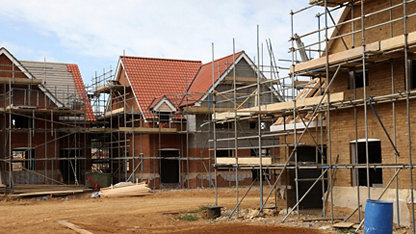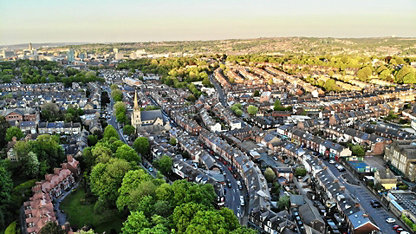Whose real estate sectors stand to gain most from the economic uncertainty caused by US president Donald Trump’s trade spat? How might these emerging markets develop, and what opportunities does this bring for property professionals? Alex Frew McMillan investigates.
US foreign policy used to have little significance to Asia’s real estate professionals. That, however, has changed as the war on terror has made way for the war on trade.
Battle lines have been redrawn, and businesses in China and the US in particular are trying to get out of the line of fire.
Who wins when superpowers face off?
China-based manufacturers have already been hit. When surveyed by the American Chamber of Commerce in South China, 64% of US companies said they were considering moving production out of China.
The effects are being felt in headquarters on both sides of the Pacific. Around 85% of US companies in China said they were already suffering from the higher tariffs imposed by both countries, while 70% of Chinese companies said they had been hurt.
Besides higher duties, companies are also experiencing bureaucratic delays on paperwork, and slower processing times at customs. Yet US president Donald Trump’s bid to lure US producers back home is failing. Only 1% of US companies in China say they intend to establish a manufacturing base in North America.
Takeshi Akagi FRICS, head of Japan research for JLL in Tokyo, believes the worsening global economic environment will temper real estate valuation gains in Asia. Although he is still optimistic about Japan, and doesn’t envision a deterioration in Asian markets, “expectations of rental growth might be smaller than before, and the value growth should be limited compared to previous years”.
Unexpected benefits
In terms of direct impact, there have been gains for both industrial and warehouse space in emerging Southeast Asia. They benefit as manufacturers relocate supply chains away from China and set up new production bases.
“Although the US-China trade war has yet to produce a clear winner, there are signs that south-east Asia is emerging as a major beneficiary,” says Desmond Sim, head of research, Singapore and South East Asia, at CBRE.
Concern over tariffs is one of an array of factors causing manufacturers to shift production out of China. Rising labour costs have become prohibitive for low-cost industries, while tougher environmental protections have eaten into margins. China’s currency controls and insistence on joint ventures in many industries also encourage manufacturers to look farther afield.
“This has been in the making for many years,” says Stephen Wyatt FRICS, the country head for JLL in Vietnam. “What the trade wars have done is accelerate that process.”
“While we have America going one way and becoming more ‘America First’ and protective, we’ve got Vietnam being very open and integrated. There’s a window of opportunity and they’re grasping it with both hands.”
Stephen Wyatt FRICS, JLL
Vietnam
Indonesia is carving out a role for itself as base for manufacturers in low-cost goods like toys. At the other end of the income chain, Malaysia has seen surging interest from high-end production in industries such as electronics. Both Singapore and Malaysia may also gain from regional headquarters for manufacturers with operations in Asia. Vietnam sits somewhere in the middle – and shares the advantage of a border with China, as well as some cultural and demographic characteristics. But it’s no “mini-China” and has a government that is far more pro-business and pro-trade.
Windows of opportunity
“While we have America going one way and becoming more ‘America First’ and protective, we’ve got Vietnam almost going the complete opposite way and being very open and integrated,” says Wyatt. “There’s a window of opportunity and they’re grasping it with both hands.”
For real estate, the industrial sector has seen the greatest gain. The number of inquiries that property brokerages report has at least doubled, if not tripled, with interest from Europe, the US and other parts of Asia. The uptick is significant enough that JLL has, as of 1 January, set up a service dedicated to industrial clients looking for industrial space in Southeast Asia.
Capital values in Vietnam have increased around 7% per year over the last five years, reports Wyatt. Other sectors are less directly affected by US-China trade tensions but gain from Vietnam’s economic advance. “Logistics is still very immature in Vietnam, but there’s a lot of interest on the investor side,” he says. “The market is adapting and evolving very, very quickly.”
China is not necessarily always a “loser”, however. The country is moving up the skills ladder, concentrating on industries that have greater added value, and developing domestic consumption. Vietnam is becoming more export-oriented, and more concentrated in labour-intensive industries such as textiles and apparel.
Trump’s wider war
Of course, it is not just China that has incurred Trump’s wrath – he’s at war with the world on trade. Property professionals in Vietnam are aware that it too has a significant trade deficit with the US and would suffer should Trump take it to task.
Japan has come under attack principally for its automobile industry. Trump likes to play both roles in the typical good cop/bad cop routine. He says Japanese prime minister Shinzo Abe is “one of the people I’m closest with”, and Abe was the first world leader to visit Trump Tower after the US president was elected. Trump says he has bemoaned Japan’s trade deficit frequently to Abe’s face, adding, “don’t feel lonely, because you aren’t the only one.” So, Abe likely felt betrayed when Trump made pulling out of the Trans-Pacific Partnership his very first action on taking office.
“In January, Apple issued a revenue warning for the first time in almost 12 years, citing poor sales in China, where it makes most of its phones, for the flagging sales. But Apple’s woes also extend to Japan, where most of its iPhone screens are made.”
But the Japanese economy is now more linked to China than the US. In that sense, what’s bad for China is also bad for Japan. “It used to be that most foreign direct investment came from the US, but it’s now less and less,” says Hideaki Suzuki FRICS, head of research and consulting in Japan for Cushman & Wakefield. “There’s an increasing correlation with the China market because Chinese power is increasing. A lot of the power shift has already happened.”
Again, that is particularly true with production. In January, Apple issued a revenue warning for the first time in almost 12 years, citing poor sales in China, where it makes most of its phones, for the flagging sales. But Apple’s woes also extend to Japan, where most of its iPhone screens are made. “Many Japanese component manufacturers are exposed to Chinese manufacturers, so it may have a negative impact on those corporates,” Akagi agrees.
Delayed reaction
The feed-through from Trump’s tussles on trade has yet to make itself felt in Japanese real estate markets. But Suzuki notes that the global financial crisis had no initial impact, either. It was only 12 to 18 months later that the crisis hit the Japanese office market. Suzuki believes Japanese office space will once again feel the full force of trade disruption on a delayed basis. “This kind of significant impact in the economy tends to have a lagging impact on the real estate market,” he says. But the selloff in stock markets, a leading indicator, suggests that rents and capital values will eventually suffer.
For now, Japan is enjoying its new-found economic and political solidity. With not only the trade war but also Brexit and geopolitical tension between Russia and the West, Japanese citizens are happy to have their longest-tenured post-war leader. “In such a dynamic macroeconomy, it’s very fortunate that Japanese citizens have Abe offering strong and stable leadership,” says Suzuki.
Beyond just trade, Trump has introduced a whole level of unpredictability that upset many of the norms. Geopolitics, once brushed aside as of little concern to a long-term asset like property, is an issue that is here to stay.
There are no real winners from trade wars. As governments impose higher taxes and put up barricades, suppliers and above all consumers lose in the end. Even if a truce in the trade war holds, it’s likely that tensions between the world’s top two economies will continue. Those flare-ups will continue to produce unpredictable and far-reaching effects.
“We, as a real-estate industry, have to be pretty aware of the impact from Trump, Brexit and other factors,” cautions Wyatt. He hopes those tensions subside. “I don’t think this is good for anyone.”
This article originally appeared in the APAC Q1 2019 edition of Modus.
















